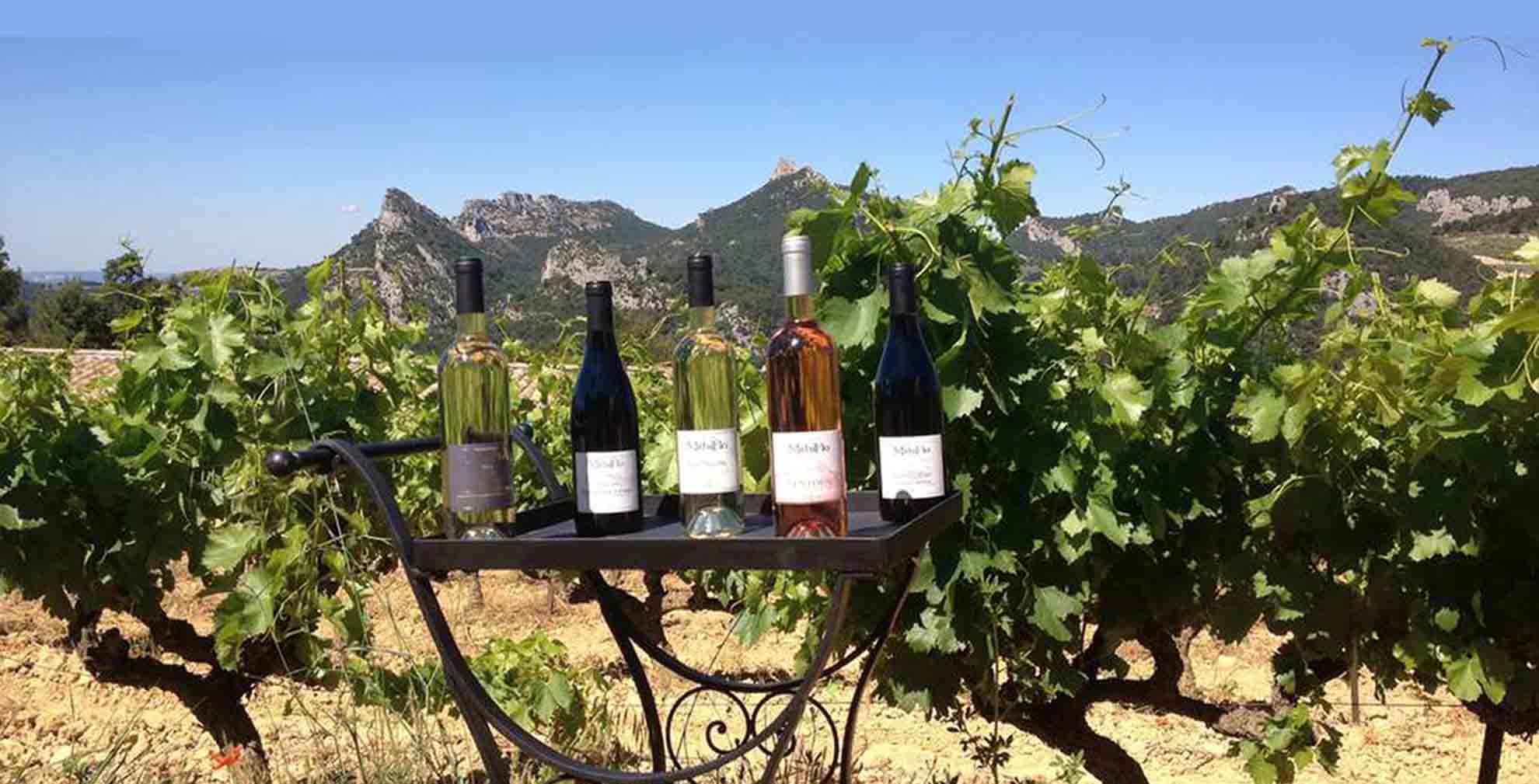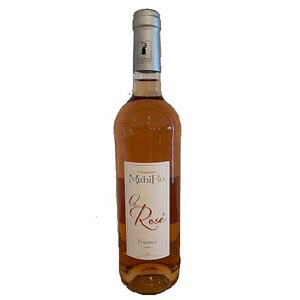
BEAUMES-DE-VENISE - CÔTES DU RHÔNE - CÔTES DU VENTOUX
Catalog of great Red wines - Rosés wines - Whites wines - Muscats de Beaumes-de-Venise
Exceptional French Wines available for sale

Our passion for your pleasure!
Purchase on order or at the Domain. Home delivery possible. Do not hesitate to contact us!
Our great appellations / crus
The Côtes du Rhône is a wine of protected designation of origin (PDO), formerly controlled designation of origin (AOC), produced on the right and left banks of the Rhône between Vienne and Avignon. A regional appellation which, in 1937, defined the red, rosé or white wines produced throughout the Rhône Valley. Embellished from many local and communal PDO distinguishing specific terroirs or specific production characteristics, it actually includes reds, rosés and dry and sweet whites, produced on 42,000 hectares of vines. It is one of the oldest and of the largest protected designations of origin. The appellation is spread over 171 municipalities and 6 departments (Ardèche, Drôme, Gard, Loire, Rhône and Vaucluse). The predominantly Mediterranean climate benefits from hot and very sunny days, and is balanced by seasonal rains and the influence of the mistral which protects against disease. The grape variety of vines dedicated to this appellation is dominated by Grenache (40% minimum) for reds and rosés, Syrah also being very present throughout the southern part. Many complementary grape varieties (Mourvèdre, Cinsault, Carignan etc ...) can respond to local soil and climate issues.
The Beaumes-de-Venise is a red wine with controlled designation of origin produced in the towns of Beaumes-de-Venise, Lafare, La Roque-Alric and Suzette, in the Vaucluse. The Beaumes-de-Venise appellation is an appellation of the Rhone Valley, recognized AOC in 1937, and qualified in 2005 "Cru des Côtes du Rhône" as Gigondas, Vacqueyras, Châteauneuf-du-pape etc. ... The vineyard occupies the slopes of the south-southeast slope of the Dentelles de Montmirail. The main grape variety of Beaumes-de-Venise PDO is Grenache noir for at least 50% and the complementary grape variety is Syrah for a minimum of 25%. Can be added grape varieties such as Mourvèdre, Cinsault and other grape varieties authorized in the Rhône Valley. The character of each Beaumes-de-Venise PDO is determined by the terroir: the nature of the soil, its exposure and the prevailing climate are all essential factors in the quality of each wine for each plot. The red wines of the Beaumes-de-Venise PDO come from three major terroirs: the Triassic Lands, the White Lands of the Cretaceous and the Gray Lands of the Jurassic. Respect for the environment and the quality of the wines are at the heart of the concerns of the winegrowers who drive this Beaumes-de-Venise PDO.
The appellation also produces a natural sweet wine: Muscat de Beaumes-de-Venise . The Muscat de Beaumes-de-Venise is very famous for its quality (it is one of the best muscats in the world), made from small-grained white Muscat grapes, it is a well-balanced Muscat with aromas of very ripe grapes and candied oranges.
Côtes du Rhône vineyard

The ventoux is a wine with a protected designation of origin from the vineyard of the valley of Rhône. Formerly called Côtes du ventoux, it was renamed "Ventoux" by decree n ° 2009-1243 of 14 October 2009.
The vineyard is arranged in an arc around Mont Ventoux and extends over fifty-one municipalities, between Vaison-la-Romaine to the north and Apt to the south.
The rosés of Ventoux vary from very pale pink to light ruby and reveal very fruity accents characterized by a clever balance between freshness and elegance.
The Vaucluse country wine (PGI Vaucluse): the birth of local wines is linked to the qualitative change in the French vineyard undertaken in 1960. Created in 1968, the country wine have, since 2009, been recognized by community regulations as Protected Geographical Indication ( PGI, new name for country wines).
The Protected Designations of Origin (PDO) promote a local wine respecting a tradition, the Protected Geographical Indication (PGI) offers much more freedom to the winegrowers on the use of grape varieties and on the vinification methods and guarantees the origin of the grapes, 100% Vaucluse.
THE BEST OF MUSCATS - BEAUMES-DE-VENISE MUSCAT

Great wines - Recognized and esteemed appellations
Especially appreciated PDO crus from Beaumes-de-Venise, Côte du Rhône and Ventoux
Purchase on order or at the domain of our medal-winning wines
Wine - Vino - Vinhox - Wein - Vino - вино - 葡萄酒, 葡萄酒 - ワイン -











